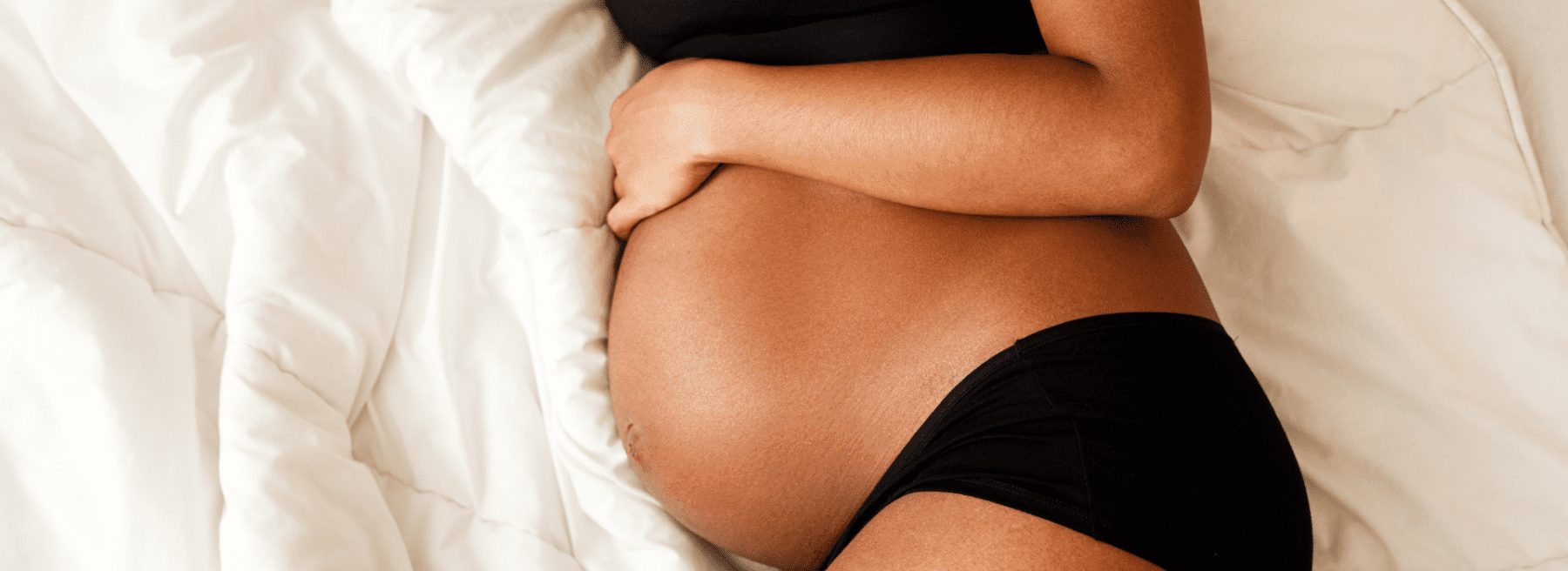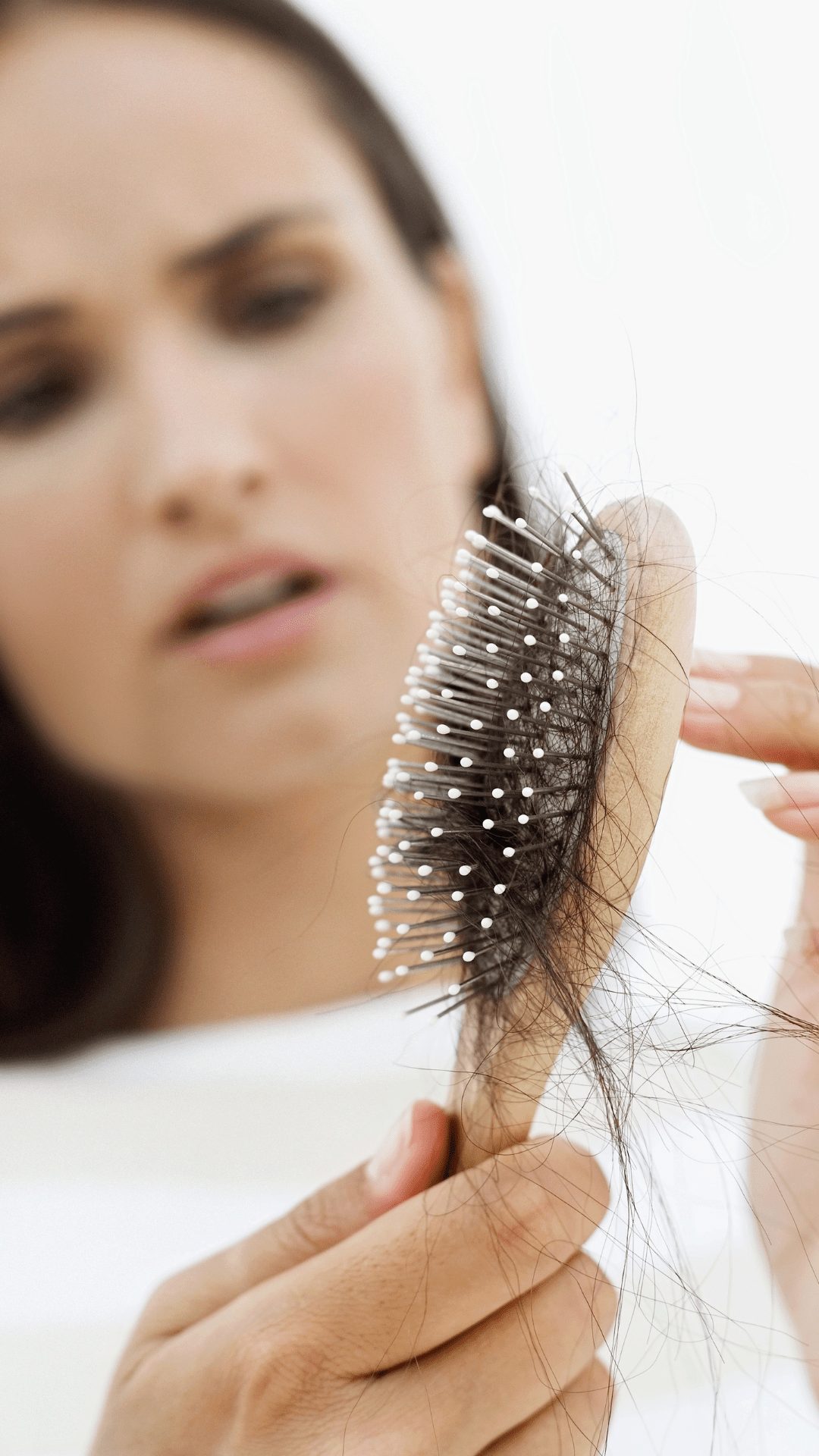
MHR Clinic Manchester’s Senior Consultant Donna Tweedale looks at what causes hair loss during pregnancy and explains how changes in hormones and a range of health issues can be the reason why women experience the alarming occurrence when carrying a baby.
Hair loss in pregnancy is a rare occurrence but it is still experienced by a small percentage of women.
The intense bodily changes a woman goes through during the months in which she carries a child can affect the condition of her hair in a variety of ways.
For the majority of women, pregnancy results in fuller, thicker and shinier hair.
This is due to rising estrogen levels in the body which slow down the hair growth cycle, keeping follicles in their growth (anagen) phase for longer.
As a result, less hair is shed and a head of hair becomes increasingly voluminous as a woman goes further into pregnancy.
Other women find that their hair becomes more dry, coarse and brittle during pregnancy.
This is usually caused by the scalp’s sebaceous glands failing to produce the same quantity of oil as they did before pregnancy.
That drop in sebum production, combined with temperature rises in a woman’s body and a high demand on nutrients from the baby, can result in hair becoming frizzy and easily broken.
Unfortunately, a small minority of women experience hair loss during pregnancy.
Pregnancy hair loss can be a distressing experience for a woman and is typically found to result from one of the two following issues.


Hair Loss from Hormonal Changes during Pregnancy
Hormonal changes in a woman’s body can cause hair loss in early pregnancy.
As the balance of hormones shifts radically to support the growing baby, a woman’s body can be suddenly stressed and react in shock.
In most cases, this shock and stress on the body is manifested through morning sickness.
However, it can be enough to cause hair loss during pregnancy too.
The type of hair loss occurring in this situation is referred to as telogen effluvium, the biological process of hair follicles quickly entering a resting (telogen) phase en masse.
Telogen effluvium during pregnancy can cause up to three times as many hairs to be shed from the scalp as would be normal outside of pregnancy.
Pregnancy hair loss, occurring for this reason, may happen in the moment of stress, or it may take time for follicles to be affected by the stress experienced.
It is not abnormal to suffer hair loss up to four months after the body experiences stress or shock.
This type of hair loss during pregnancy will eventually end and doesn’t generally last longer than six months, or result in permanent hair loss.
However, MHR Clinic provides an herbal and vitamin nutrient programme combined with low level laser therapy to help counter the effects of pregnancy hair loss in these circumstances.
Hair Loss caused by Health Issues when Carrying a Baby
Health issues triggered by pregnancy can cause hair loss for a small number of women.
Pregnancy and hair loss can go hand in hand particularly in cases of hypothyroidism.
Hypothyroidism is the production of too little of the hormone called thyroid, and it occurs in approximately three percent of pregnant women.
It can trigger telogen effluvium hair loss, along with constipation, muscle cramps and exhaustion.
In other instances when pregnancy adversely affects a woman’s health, nutrient deficiency – in particular low iron levels – can contribute to hair loss.
Iron deficiency occurs when the body diverts its supply of iron to the baby.
It is most common during pregnancy when a woman is carrying twins, triplets, quadruplets and more multiple babies.
Low iron levels also frequently occur when two successive pregnancies happen close together.
They can be exacerbated further by bad morning sickness.
When a body does not possess enough iron to transport adequate oxygen and nutrients in red blood cells to organs and tissues, typically the first part of the body to suffer is hair.
To help identify iron deficiency as the cause of hair loss, other symptoms of iron depletion during pregnancy include shortness of breath, headache, fatigue and an irregular heartbeat.
In an instance of low iron levels, hair will not exit its shedding phase or get its volume and shine back until those low levels are rectified.
If you want to understand more about the causes of hair loss during pregnancy and how it can be addresed, please talk to MHR Clinic about the options available to you. Telephone 01565 745 344 or through this contact page.
